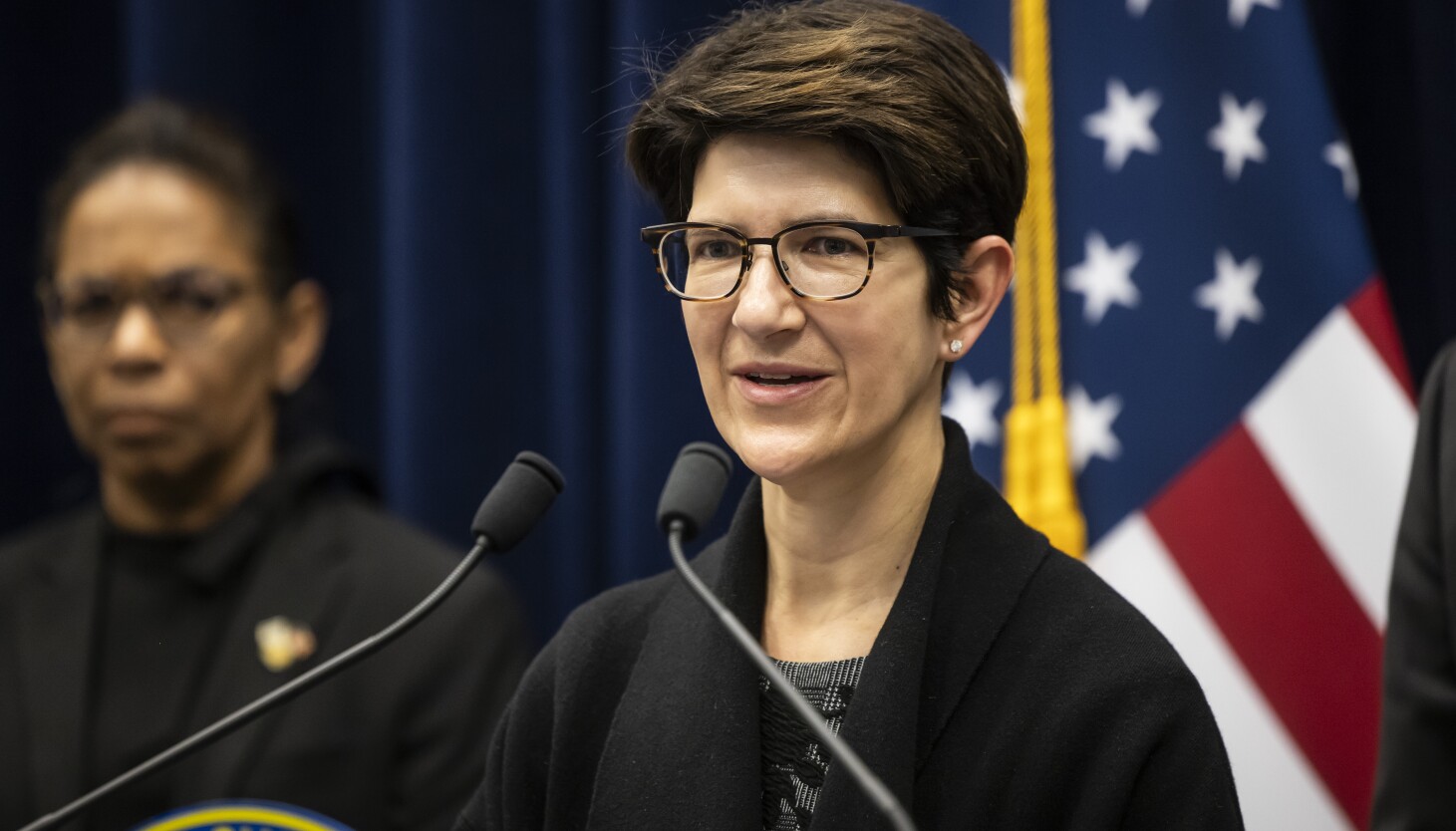Chicago’s chief financial officer on Tuesday branded Illinois’ regressive tax structure as “the crime of the century” that can only be solved through a graduated income tax and extending the state sales tax to professional services.
CFO Jill Jaworski took aim at a tax structure that requires people earning $25,000 or less to shell out 19.4% of their annual income in state and local taxes, or roughly $4,800. The total tax burden for those earning more than $250,000 is just 11.5% in taxes.
The overall tax burden should be greater for higher-income earners, Jaworski said during an appearance at the City Club of Chicago. But in Illinois, the tax structure is “backwards,” which “makes no sense at all,” she said.
“We’re not able to put in any kind of graduated taxes. We’re not able to put new taxes on personal income, corporate income. All the kinds of things that could lessen the regressivity. Our … sales taxes are on goods — not services,” Jaworski said.
In the 36 years that she has lived in Illinois, Jaworski said the state has swung from a politically moderate state with a moderate Republican as governor to a “more liberal, progressive state” that has become strongly Democratic.
But the tax structure “does not reflect moderate or progressive values,” she said.
“We need to make changes to fix this. We can do much, much better. We have to as a group — government leaders, civic leaders, business leaders community leaders — we have to work with … our state Legislature to make changes so we don’t have this kind of situation because this is, to me, the crime of the century right here,” Jaworski said.
For decades, Chicago mayors and their finance teams have been lobbying the Illinois General Assembly to broaden the sales tax umbrella to professional services.
The idea has gone nowhere in Springfield — even though it has a potential annual yield of $305 million for the city alone.
But that legislative losing streak didn’t stop Jaworski from making a renewed pitch to a luncheon crowd filled with powerful movers and shakers. She said the biggest reason Chicago has such a high sales tax rate is because the sales tax base is so narrow and does not include professional services.
During the 1950s, 70% of consumer spending was on goods. Now, it’s down to 50% on goods and the other half on services, she said. And that’s not including health care and housing services.
“I have a gym membership. I get a massage every month. I get my nails done. I get my hair done. I consume a lot of services. … I’m going to pay an interior decorator to help me with a couple of rooms in my house I want to redo. I pay no taxes on any of that,” she said.
“Like most people sitting in this room, I can afford to pay taxes on the activities that I engage in that are, frankly, luxury activities. And I should be paying taxes on them. I should be paying a higher percentage of my income on the … activities that I enjoy. They are a major part of our economy. … Whereas somebody who is living paycheck-to-paycheck is paying taxes on most everything they do. That is regressive, and it’s unfair.”
On the other end of the tax spectrum is the 1% sales tax on groceries that the state eliminated. If the City Council doesn’t renew it by Oct. 1, the city will go $80 million deeper in the hole.
Jaworski acknowledged that the tax “stirs a lot of feelings in people” — and puts City Council members in an “uncomfortable position” — at a time when grocery prices are rising.
But she stressed that the average Chicagoan will pay just $60 more a year if the tax is reinstated, and that the 1% levy does not apply to Supplemental Nutrition Assistance Program recipients.
Gov. JB Pritzker tried to switch to a graduated income tax, but his binding referendum in 2020 was defeated after a big-bucks battle with billionaire businessman Ken Griffin.
